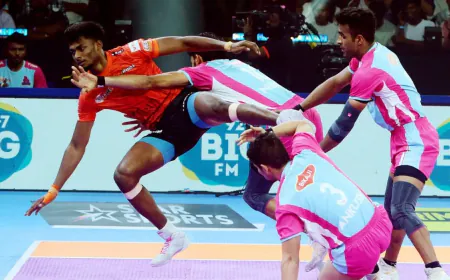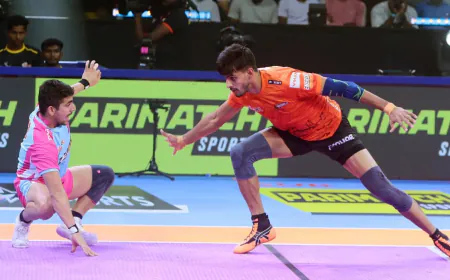To All Men Who Love Football: Stand Up Against Game-Day 'Banter' and Sexual Violence
Thanks to the tireless efforts of numerous organizations, there has been a growing recognition that casual sexism is anything but harmless. Yet, for genuine change to take root, men must lead by example. This involves speaking out against unacceptable behavior and challenging peers when witnessing or hearing something that crosses the line. Silence is complicity, and there is no room for bystanders in this critical fight.

Eve De Haan's harrowing experience of being sexually assaulted on the tube after the Tottenham vs. Brentford match serves as a stark reminder of the persistent male dominance in football, where harmful behaviors often go unchecked. This issue extends beyond the sport itself; it’s a societal concern that is perpetuated within the football culture. At matches and on public transport, the environment frequently favors silence over support, making it imperative that we break this silence. If you were taken aback by De Haan's account, it's time to start paying attention.
The statistics surrounding male violence against women are alarming, and they likely represent only a fraction of the reality. In England and Wales, an estimated two million women experience male violence each year—equating to one in twelve. A 2021 survey revealed that only 3% of 18- to 24-year-olds in the UK have not faced sexual harassment in public spaces. Even more troubling, 95% of women choose not to report incidents of harassment, often due to fears of disbelief or the traumatic nature of the reporting process.
This issue transcends isolated incidents; it reflects a broader culture that normalizes and excuses male violence against women, allowing it to persist with little consequence. When bystanders—often other men—laugh off inappropriate behavior as part of the game-day "banter," it creates an environment where some men feel emboldened to act without fear of repercussions.
Casual sexism, including so-called “banter,” acts as a precursor to coercive control, violence, and abuse. While not every individual who makes inappropriate comments will go on to commit acts of violence, the normalization of sexist language serves as implicit approval for those who escalate their behavior.
Football cannot afford to overlook the fact that until it confronts these issues directly, they will continue to manifest. The conversation should shift from “How can women get home safely?” to “Why do men feel empowered to assault women after football matches, even with others around?” Too often, we witness male bystanders dismissing such behavior as merely part of the game-day experience.
A comprehensive approach is required, one where the responsibility to create safe spaces is shared by everyone rather than placed solely on women. As part of Women of the Lane, a supporter group for female and non-binary Spurs fans, we are dedicated to fostering safer environments and a sense of community. We collaborate with the club to enhance match-day experiences and to support our fellow fans. However, our ultimate objective is not for women to alter their behavior to avoid assault; it is for men to cease their degrading and violent actions in the first place.
Thanks to the tireless efforts of numerous organizations, there has been a growing recognition that casual sexism is anything but harmless. Yet, for genuine change to take root, men must lead by example. This involves speaking out against unacceptable behavior and challenging peers when witnessing or hearing something that crosses the line. Silence is complicity, and there is no room for bystanders in this critical fight.
This movement calls for a transformation in the mentality that underlies the sport we cherish. We need to explore how football can contribute to these important discussions. Premier League players possess vast platforms and influence; it is essential for them to use these channels for positive change, openly addressing issues of sexual harassment and violence while highlighting the role of men in driving this transformation. This is not merely about enforcing rules; it is about reshaping attitudes that permit such behavior to persist.
We urge institutions like the police and Transport for London to increase their efforts. However, no amount of surveillance, extra patrols, or public awareness campaigns will rectify the problem if the underlying culture remains unchanged. The low rates of charge and prosecution for sexual assault illustrate how easy it is for perpetrators to escape accountability.
Women of the Lane will continue to forge connections among women to ensure that we all feel safe while enjoying the sport we love. But to all the men who share our passion for football: stand up, be counted, and take the lead in fostering change. It’s time to reshape football culture into one that genuinely prioritizes safety and respect for everyone, irrespective of gender.





















































